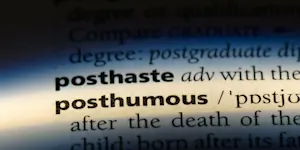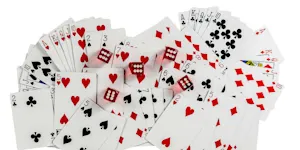What Makes This Word Tick
Ennui captures that particular flavor of boredom that isn't just about having nothing to do; it's about the sense of weariness stemming from a lack of interest or excitement. It's like when you're flipping through all 300 channels and finding nothing worth watching. Ennui is more than simply boredom—it's that restless dissatisfaction that comes when you're not quite sure what you're looking for.
If Ennui Were a Person…
If ennui were a person, they'd be that one friend at the dinner table who, despite the lively conversation, looks longingly at the door as if dreaming of another place. They’d probably wear muted colors, sigh dramatically, and might constantly toy with their food rather than eat it. A professional daydreamer, if you will.
How This Word Has Changed Over Time
Originally from the French language, "ennui" was adopted into English in the 18th century. While it still retains its refined aura of poetic listlessness, in modern contexts, it sometimes veers toward describing everyday tedium—a bit more common but no less evocative.
Old Sayings and Proverbs That Use Ennui
Ennui doesn't make many appearances in traditional sayings or proverbs, as it's a relatively recent loanword in English. However, it fits perfectly into the sentiment behind the familiar phrase, "idle hands are the devil’s workshop," suggesting the mischief and malaise that can arise from inactivity.
Surprising Facts About Ennui
Did you know that some psychologists believe ennui can actually spur creativity? When you're in a state of ennui, your mind may wander into unexpected territories, fueling inventive thinking. It's the same idea that leads to fascinating shower thoughts—where your brain finds itself free to explore.
Out and About With This Word
Ennui might sound posh and worldly, but it's surprisingly at home just about anywhere. Picture it reclined luxuriously on a French café patio or sprawled out on a suburban couch on a lazy Sunday afternoon. It finds companionship in the prolonged sighs of artists and the sidelong glances at life by retirees seeking new adventures.
Pop Culture Moments Where Ennui Was Used
Ennui has made its mark in culture, often describing the existential angst of characters in movies and books. Think of existential films like "Lost in Translation," where characters seem to wander through plots more absorbed in their internal landscapes than any outward action.
The Word in Literature
Ennui often pops up in literature that delves into themes of existentialism and the modern human condition. It's a favorite in the works of authors like Albert Camus and Franz Kafka, who explore the absurdities of life, capturing the profound sense of yearning ennui embodies.
Moments in History with Ennui
The Roaring Twenties, with its rapid social change and glitzy façade, masked a deep-seated ennui for many. Hidden behind the years of jazz and flappers was a real sense of disillusionment and the search for meaning in a post-war world that strangely echoes today.
This Word Around the World
In Japan, the concept of "mononoaware" speaks to a sensitivity to the fleetingness of life, which touches on a similar concept of living with an awareness of life's transience and subsequent ennui. Meanwhile, in Italy, the word "taedium" might be used to express a comparable kind of weariness.
Where Does It Come From?
Ennui traces its roots to the Latin word "inodiare," meaning to make loathsome, trickling through Old French as "enui," before landing into modern French and English usage. It's a journey as rich as the layers of meaning the word has picked up along the way.
How People Misuse This Word
Ennui is sometimes used interchangeably with simple boredom, but true ennui is more existential—a deeper philosophical dissatisfaction with life, rather than a temporary lack of things to do.
Words It’s Often Confused With
Boredom: While similar, boredom is more about having nothing to do, whereas ennui implies deeper dissatisfaction.
Melancholy: Often overlaps with ennui but leans more toward sadness than restlessness.
Lethargy: Suggests a lack of energy, unlike ennui, which reflects more of a mental state than a physical one.
Additional Synonyms and Antonyms
Synonyms include languor, listlessness, and tedium, all touching on different nuances of ennui. Antonyms might include enthusiasm or engagement, offering a vigorous contrast to its languid nature.
Want to Try It Out in a Sentence?
"Despite the vibrant afternoon sun shining through her window, she couldn't shake the persistent feeling of ennui that made even the simplest tasks seem monumental."
















